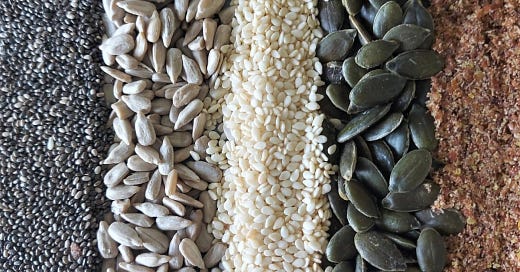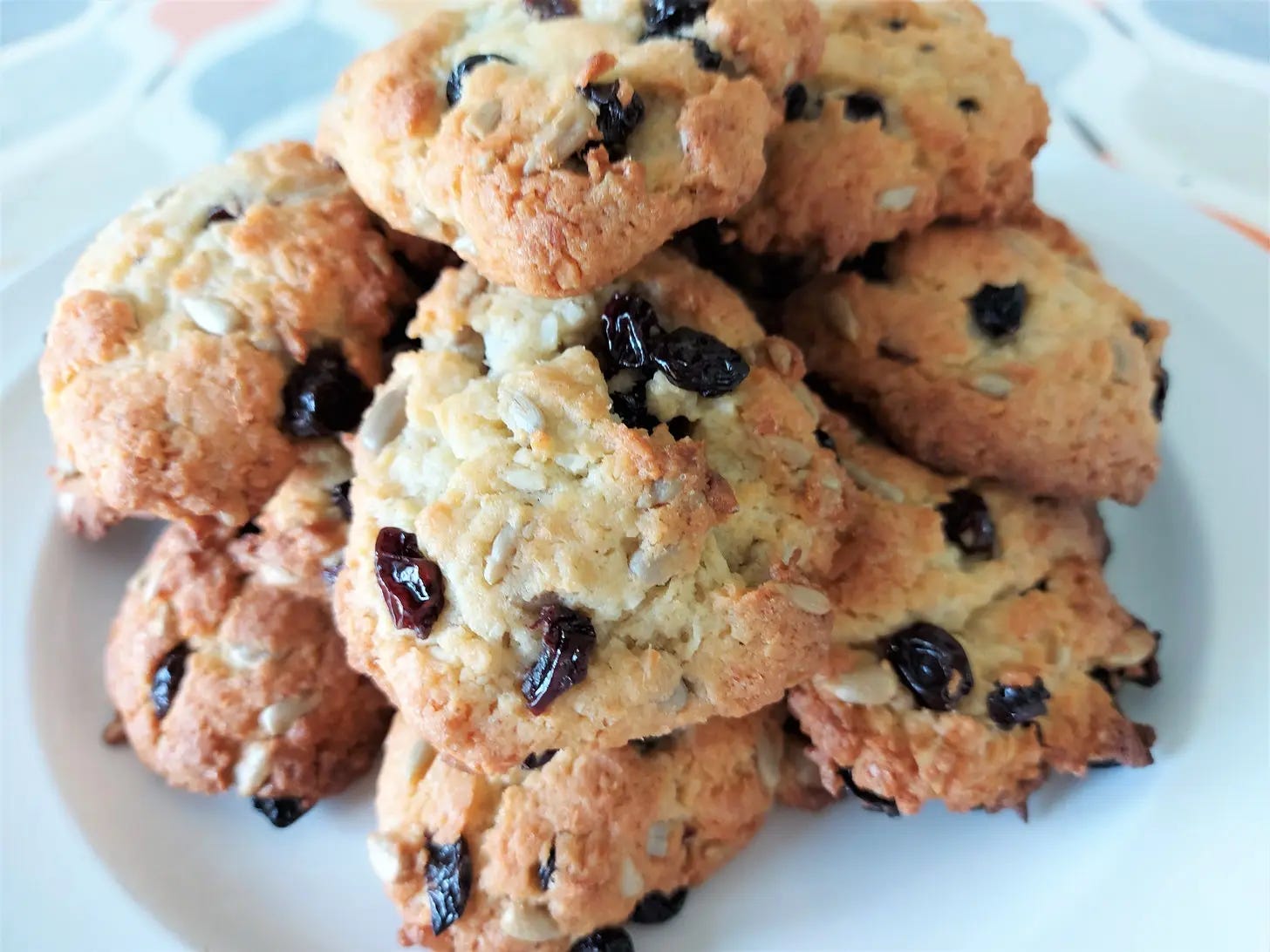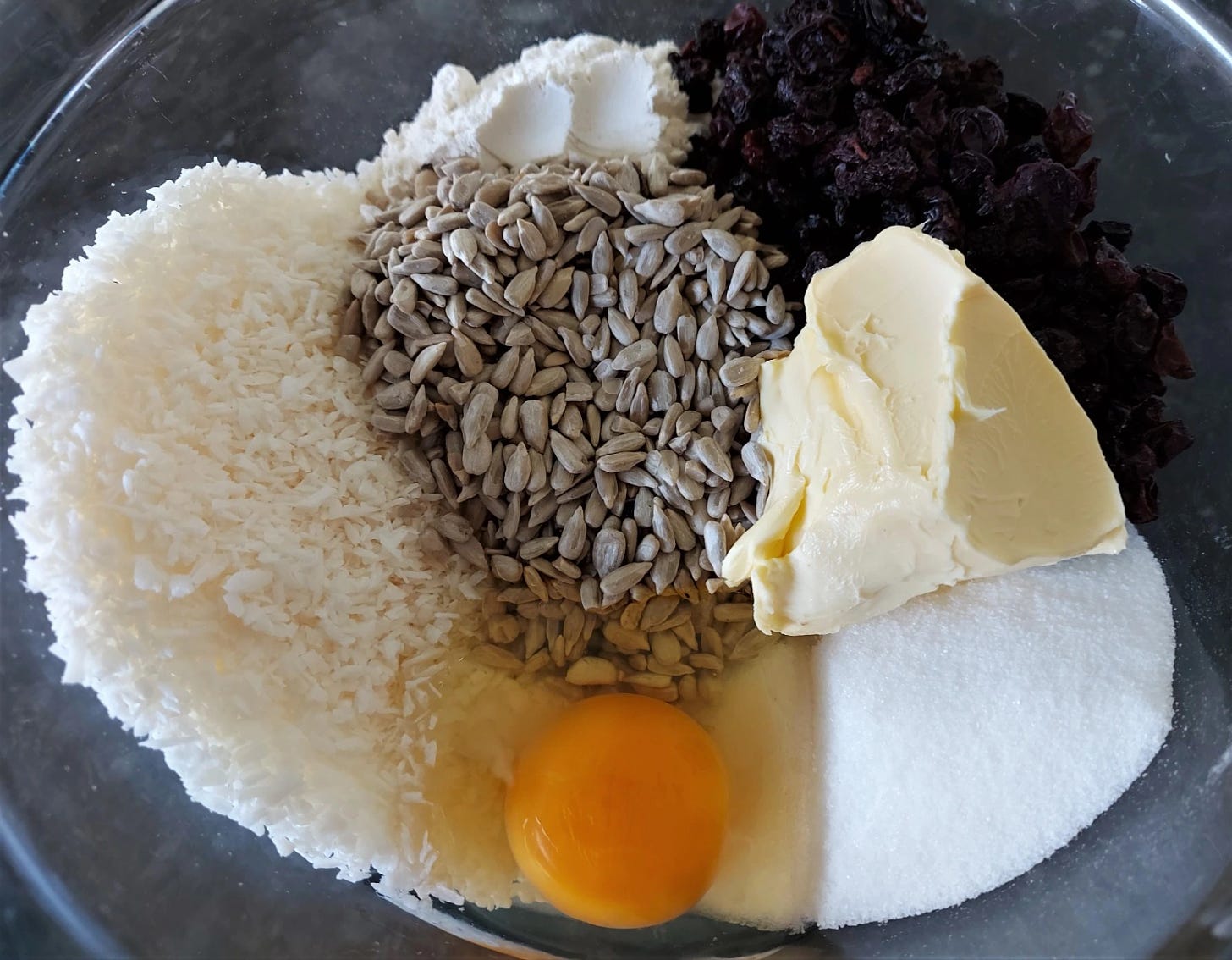Seeds may be tiny, but they pack a big nutritional punch. From sunflower seeds to sesame and pumpkin seeds, each seed has something unique to offer. They are dense in nutrients and provide complex carbohydrates, proteins, fats, minerals, vitamins, dietary fibre and plenty of energy!
Seeds are nutty, crunchy and delicious. You can use them as a snack food or include them in many recipes, such as the one described below. An easy way to ensure you remember to eat them is to keep a few small jars on hand to sprinkle on your favourite dishes, such as porridge, cereal, salad and soup.
Here are 5 popular seeds and how they compare
Sunflower Seeds
Sunflower seeds are making a big comeback. They are packed with good fats, selenium, copper, and antioxidant-rich vitamin E – all of which promote better heart health and stave off inflammation. High levels of vitamin E also improve recovery after exercise as it reduces stress in the body.
Sunflower seeds are also rich in folate, a nutrient that’s vital for women. While the high-fibre content in the seeds keeps you feeling full for longer.
Munch them by the handful, or add them to trail mix, salads or stir-fries. They are also great in bread, cookies and muffins.
Chia Seeds
Chia seeds don’t get their super seed status by chance. The little black specks are rich in Omega-3s, protein, calcium, magnesium, zinc, iron and fibre.
These tiny seeds pack in 10 grams of fibre per 2-tablespoon serving. This isn’t your regular kind of fibre as it swells to form a gel when added to liquid. It can keep you feeling full for longer and may help you manage your weight by controlling your appetite.
Chia seeds also stabilise blood sugar levels, and help improve mood and memory.
Add them to yogurt, smoothies or a tapioca-like pudding as per my previous post, Food For Thought.
Sesame Seeds
Most often seen on burger buns, sesame seeds deserve more than a random sprinkling. The power of the sesame seed dates back thousands of years when it was used by the Egyptians as a medicine, while the women of ancient Babylon mixed honey with sesame seeds to prolong youth and beauty.
Sesame seeds are the main ingredient in tahini (used in hummus) and the Middle Eastern sweet treat, halvah. “Open Sesame” – the famous phrase from Arabian Nights – reflects the distinguishing feature of the sesame seed pod, which bursts open when it reaches maturity.
Sesame seeds are valuable due to the large amount of oil that they contain, which is very resistant to rancidity.
The seeds are tiny, flat and oval in shape – with a nutty taste and a delicate crunch. They come in a host of different colours, depending upon the variety, including white, black, yellow, and red. Toasting makes them even crunchier and can enhance their flavour.
Sesame seeds are loaded with minerals that are incredibly important for our bodies. Minerals such as magnesium, calcium and zinc have been shown to help with colon cancer, prevent migraines, reduce bone loss and lower cholesterol.
Pumpkin Seeds
Apart from all the nutrients like protein, potassium and magnesium, the one thing that makes pumpkin seeds special is vitamin K. You won’t find this nutrient in many food groups and its deficiency can lead to low bone density. Vitamin K helps in binding the calcium in the bones, making them stronger. That’s why pumpkin seeds are invaluable to those who have fragile bones or arthritis.
Pumpkin seeds are high in fibre, iron and zinc. Studies have also linked them with a reduced risk of certain types of cancer, improved cholesterol and blood pressure levels.
Roasted pumpkin seeds are a great snack food. You can sprinkle them on porridge, mix them into smoothies, or find them in granola and energy bars.
Flaxseeds
Flaxseeds, also known as linseeds, have been used in the human diet for over 5000 years. They are wonderful sources of dietary fibre, potassium, magnesium, and manganese – but they’re most famous for their high levels of plant-based Omega-3 essential fatty acid and phytoestrogens. If you’re a vegetarian or don’t eat fish, flax seeds can be your best source of Omega-3 fats.
There is evidence that flaxseeds may lower cholesterol. In one study, people with high cholesterol, consuming 3 tablespoons (30g) of flaxseed powder daily for three months lowered total cholesterol by 17%, and “bad” LDL cholesterol by almost 20%.
These effects appear to be due to the fibre in flaxseeds, as it binds to bile salts and is then excreted by the body. To replace these bile salts, cholesterol is drawn out from your blood into your liver. This process is believed to reduce the amount of cholesterol in the blood.
Adding flaxseed to your diet is easy. You can bake it into muffins, mix it in salads, yogurt, smoothies, cereals or soup.
Ground flaxseeds are better than whole ones. They are easier for the body to digest, but tend to have a shorter shelf life. It’s best to store them in the fridge to prevent spoiling.
Gradually add the seeds to your diet while increasing your intake of water as they’re high in fibre.
How much should you eat?
Because seeds are so nutrient-dense, you don’t need to eat that many to reap the benefits. The exact serving size varies depending on what kind of seed you’re eating, but a good general guideline is to aim for a 200-calorie serving (about 2 tablespoons) a day.
Try to eat as diverse a range of seeds as possible. Each one has a different nutrient profile. Organic is best as seeds can soak up a lot of pesticides due to their high-fat content.
Recipe ~ Sunflower Cookies
Makes 16-20
Ingredients
140g self-raising flour
70g sunflower seeds
100g desiccated coconut
100g sugar
1 egg
70g butter (melted)
100g currants
Method
Preheat oven to 180°C/350°F/gas 4
Mix all ingredients in a bowl until well combined.
Line a baking dish with parchment paper or aluminium foil.
Place teaspoons of the mixture on the baking dish and flatten.
Bake for 10 minutes, or until cookies are golden brown.
Enjoy!
—
Disclaimer
This blog is for informational purposes only and should not be construed as medical advice. If you have any questions about your own nutrition plan, please consult your doctor.






